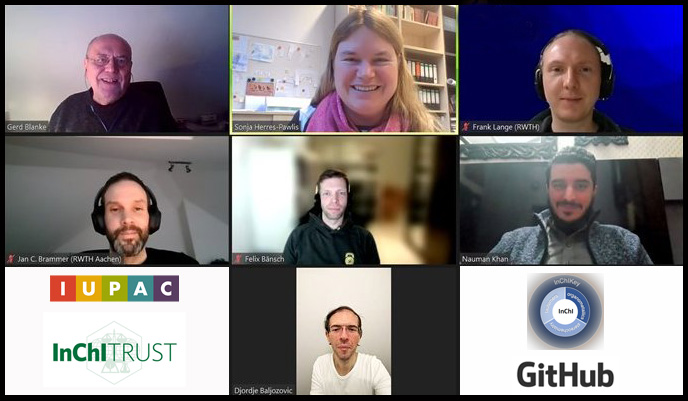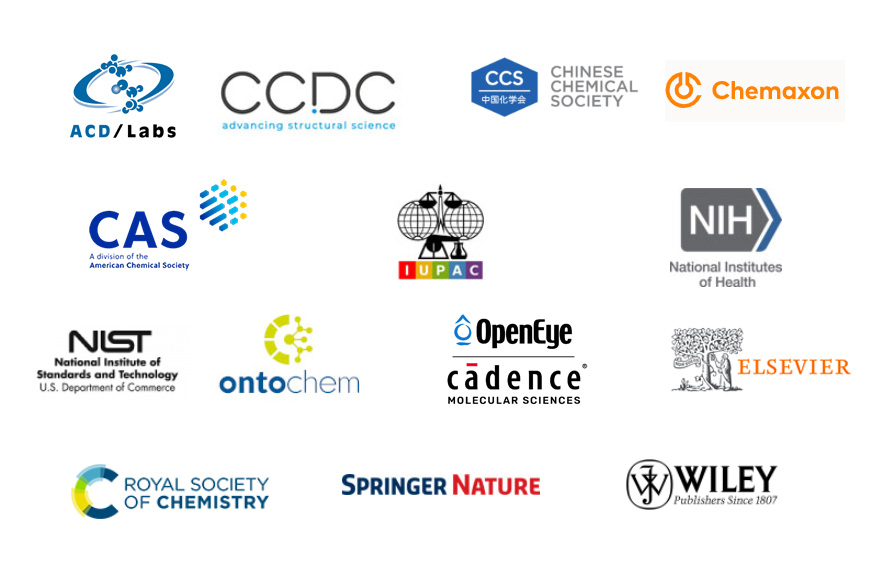IUPAC InChI moves to GitHub to support sustainable chemical standards development
The InChI is a widely used standard chemical identifier that enables the connection and interoperability of chemistry data across the web. The core code and development framework of the InChI has now been migrated to GitHub, providing a foundation to support future extensions of the standard and associated applications, and to broaden the expertise supporting the standard. The first milestone of this work is the 1.07 version, recently approved by IUPAC (International Union for Pure and Applied Chemistry) and the InChI Trust and available for download at GitHub (https://github.com/IUPAC-InChI/InChI/releases).

The InChI has been used to identify unique chemical structures for over 20 years and is implemented in chemistry toolkits and in databases across the world. The work to maintain and develop the software rested on the shoulders of one expert, Igor Pletnev, and following his sad death in 2021, it became urgent to move the code to a more open model. Completion of this move with a new fully tested and approved release makes the development of this digital standard more transparent. It will also enable the extension of the InChI to further classes of chemical compounds, in particular inorganic and organo-metallic compounds, as well as future modernisation of the codebase.
Gerd Blanke, Technical Director of the InChI Trust, comments: “An important part of our effort to more openly and sustainably develop the InChI is to provide a test suite, including test code, data, and documentation. The test suite allows computing of in-house data behind the firewalls of an organization. In this way, we set objective and transparent quality criteria, and enable convenient and replicable testing. Such a test environment is indispensable for collaborative development, especially with external contributors.”
Leah McEwen, Chair of IUPAC’s Committee on Publications and Cheminformatics Data Standards, adds: “Maintained and widely adopted reliable standards such as InChI are critical to enable exchange of chemical data that findable, accessible, interoperable and re-usable (FAIR). Improved community access to the code and testing environment and increased capacity to extend the coverage will facilitate broader adoption into systems and tools across use cases in the chemical, biological, material and environmental sciences.”
The new version can be tested with a web demo version (https://iupac-inchi.github.io/InChI-Web-Demo/) which allows users to draw a chemical structure and calculate the InChI; this works in the browser, so no data is shared with external servers. Extensions to the standard are being defined, as well as applications to mixtures and reactions amongst others. For further details and more information about InChI see www.inchi-trust.org. To stay in touch with future InChI news and releases, please subscribe to our newsletter: (https://mailchi.mp/inchi-trust/inchi-news-and-updates)
The move to GitHub has been achieved with additional contributions from RWTH Aachen, the NFDI4Chem project, the Volkswagenstiftung, Data Literacy Alliance-DALIA, and the Beilstein-Institut.

The InChI (International Chemical Identifier) is developed under the overview of IUPAC with support from the InChI Trust, whose members are shown below.

